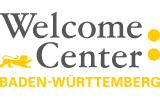New regulations on the immigration of skilled workers
Immigration of skilled workers from abroad is a building block for securing the demand for skilled workers. The new legal regulations offer new opportunities for immigration from third countries (non-EU states), but also more complexity.
On July 7, 2023, the Federal Council passed the law and ordinance on the further development of skilled worker immigration. The Act on the Further Development of Skilled Immigration was published in the Federal Law Gazette on August 18, 2023. Most of the regulations will come into force on March 1, 2024, the regulations on the EU Blue Card on November 18, 2023 and the new opportunity card on June 1, 2024. This compilation includes important changes, but cannot provide a complete overview of the new regulations. Certain requirements must always be met for the various immigration options.
The most important innovations
- Previously: employment of skilled workers only possible in related professions
In future: employment in all qualified professions (only skilled workers with formal recognition of their qualification)
- Previously: entry of skilled workers with a professional qualification or university degree recognized in Germany possible
In future: additional possibility of entry of skilled workers with a foreign professional qualification/university degree and professional experience; no formal recognition procedure necessary (only for non-regulated professions)
- Previously: settlement permit for skilled workers from abroad possible after 4 years
In future: possible after 3 years
- Previously: Residence option for skilled workers with partial recognition for qualification as part of the recognition procedure
In future: Recognition partnership as a new additional option: entire recognition procedure can be carried out in Germany
- Previously: no priority check by the Federal Employment Agency for skilled workers
In future: no priority check for trainees either
- Previously: Entry to look for a job for skilled workers with the possibility of trial work of max. 10 hours/week and to look for an apprenticeship without the possibility of trial work
In future: New addiction title: Opportunity card based on a points system with the possibility of secondary employment of up to 20 hours/week and 14-day trial employment in each case
- Further facilitation of access for ICT specialists with professional experience but without a training/university degree (ICT = information and communication technology)
- More opportunities for people without proof of qualifications through the continuation of the Western Balkans regulation with an increase in the quota and the new short-term contingent employment
3-pillar model of skilled labor immigration
In the new Skilled Immigration Act, the German government talks about the 3 pillars of skilled labor immigration. We show what lies behind them.
|
1. skilled labor
pillar |
2. experience
pillar |
3rd potential
pillar |
1. skilled labor pillar
The skilled labor pillar should be the central pillar of skilled labor immigration. This refers to international skilled workers who
- have completed a university degree abroad that is recognized in Germany, or
- have acquired a professional qualification abroad and have received a notice of full equivalence with a German qualification in the professional recognition procedure or
- have completed a course of study or qualified training in Germany
In future, these persons may work in all qualified professions (does not apply to regulated professions such as the medical, nursing and teaching professions). A job offer or contract and proof of recognition are required for these residence permits. If all requirements are met, there will be an entitlement to these titles in future; they can therefore also be applied for in Germany if you entered the country on a visa outside the context of employment.
In addition, the provisions for the EU Blue Card were amended as part of the implementation of the EU Highly Qualified Workers Directive:
- Extension of the scope of university degrees to include equivalent qualifications such as master craftsmen, technicians, business administrators, etc. as well as people with professional experience in the ICT sector (3 years of professional experience in the last 7 years)
- Holders of an EU Blue Card must be in employment commensurate with their qualifications
- Reduction of the minimum salary threshold to EUR 43,800 or around EUR 39,700 for bottleneck professions and new entrants (instead of EUR 58,400 or EUR 45,552 in 2023)
- Easier procedures for family reunification, change of employer, mobility within the EU and obtaining permanent residence in the EU, among other things
- The EU Blue Card regulations will come into force on November 18, 2023
As before, people who wish to complete a training course in Germany and already have a training contract with a company can also enter the country. As is already the case for skilled workers, the priority check by the Federal Employment Agency has been abolished.
2nd experience pillar
What is new is that in future, people without a formal recognition procedure will also be allowed to work as skilled workers in Germany. The following applies to the experience pillar:
- A prerequisite is a state-recognized professional qualification of at least 2 years in the country of origin or a university degree and at least 2 years of professional experience (in the last 5 years)
- Waiver of recognition in Germany for non-regulated professions
- ICT specialists with professional experience only need to provide proof of professional experience, not a degree
- Further requirements:
- Minimum salary of around 39,700 euros – companies bound by collective agreements may deviate downwards within the framework of the collective agreement
- Employment in a profession related to the qualification/professional experience
- existing job offer/contract
The so-called recognition partnership was also included in the experience pillar: The recognition procedure can be carried out in Germany if the employer and employee undertake to start it immediately after entry and to carry out any necessary adaptation training. In the meantime, the employee can pursue qualified employment there. The employee and employer must also meet certain requirements for the recognition partnership.
3. potential column
The new opportunity card is an addiction title. People can enter the country for a maximum of 12 months without an offer/contract to look for a job, training or qualification as part of the recognition procedure. To do so, they must meet the following basic requirements :
- secure livelihood and
- state-recognized professional qualification or university degree of at least 2 years in the country of origin and
- At least German level A1 or English level B2
In addition, they must either have full recognition of their professional or university degree or at least 6 points according to the so-called opportunity card. The criteria for awarding points are qualification, professional experience, bottleneck occupation, additional language skills, age, connection to Germany and the accompanying spouse/life partner. If the applicant receives a job offer/contract but does not yet meet all the requirements for a residence permit for employment, the Chancenkarte can be extended once for up to 2 years (follow-up Chancenkarte).
The previous requirements for those seeking an apprenticeship have been eased.
The addiction titles enable:
- Trial employment of 2 weeks each (full-time)
- Secondary employment of max. 20 hours per week (also to secure maintenance)
Opportunities for people without proof of qualification
Western Balkans regulation
As part of the Western Balkans regulation, people from the 6 Western Balkan states of Albania, Bosnia and Herzegovina, Kosovo, the Republic of North Macedonia, Montenegro and Serbia can also work in Germany without proof of qualifications. The following changes have been made:
- Regulation will be discontinued
- Quota doubled from 25,000 to 50,000 persons/year
Short-term contingent employment
Within the framework of quotas that the Federal Employment Agency can set for certain economic sectors or occupational groups, people can be employed on a temporary basis under certain conditions, regardless of their qualifications:
- Regular weekly working time of at least 30 hours
- Employment limited to a maximum of 8 months within 12 months
- Employer must be subject to collective bargaining and employ under collectively agreed conditions
- Employer must bear travel expenses
- Social security exemption is excluded
- A company can only employ foreign nationals under this regulation for a total of 10 months out of 12 months
Changes in connection with asylum migration
Changing lanes for asylum seekers
Asylum seekers can apply for a residence permit for qualified employment in Germany if they have a job offer or contract. The asylum application must be withdrawn. This regulation applies to persons,
- who have submitted an application for asylum by March 29, 2023 and
- who meet the requirements for a residence permit in accordance with §§ 18a (recognized professional qualification), 18b (recognized university degree or equivalent qualification), 19c para. 2 AufenthG in conjunction with § 6 BeschV (extensive practical professional experience)
Conversion of the training toleration into a residence permit
- Requirements remain unchanged
- New residence permit instead of toleration § 16g AufenthG
- Existing training toleration permits are to be continued as residence permits in accordance with Section 16g AufenthG after the law comes into force


